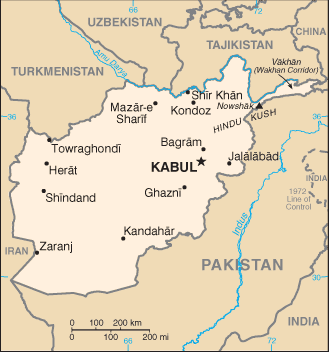The Pentagon’s narrative on the Afghan War tries to present the territory changes as brief, minor, and limited, repeatedly touting the fact that the Afghan government still controls the majority of the country. It’s a shrinking majority, however, as a new report from the Special Inspector General for Afghanistan Reconstruction (SIGAR) notes.
 SIGAR noted that the data from the Pentagon showed that the Afghan government actually controlled only about 63.4 percent of the country as of the end of August, the result of steady losses throughout the summer. All indications are that the losses have continued over the past two months as well.
SIGAR noted that the data from the Pentagon showed that the Afghan government actually controlled only about 63.4 percent of the country as of the end of August, the result of steady losses throughout the summer. All indications are that the losses have continued over the past two months as well.
If these numbers sound worse than those coming from the Pentagon, it’s because they are. Officially, the Pentagon’s percentages are based on “control or influence” of population, not physical territory held. These numbers tend to be higher, because most of the major cities are still controlled by the government, even if many are surrounded.
Pentagon officials have done this not only to have bigger percentages, but to downplay the losses, arguing that they are mostly in rural areas. While this is true, the reality is that Afghanistan is a heavily rural country, and strongly dependent on farming. The Taliban has aimed in many cases specifically at the farmlands, particularly in opium-producing regions, because those are so much more economically valuable for them.
The SIGAR report also cited major casualties among Afghan security forces as a matter of concern. Again, this was in stark contrast to Pentagon statements, which have insisted that morale among the still surviving troops remains strong


